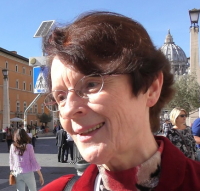
Oct 30, 2017 | Non categorizzato
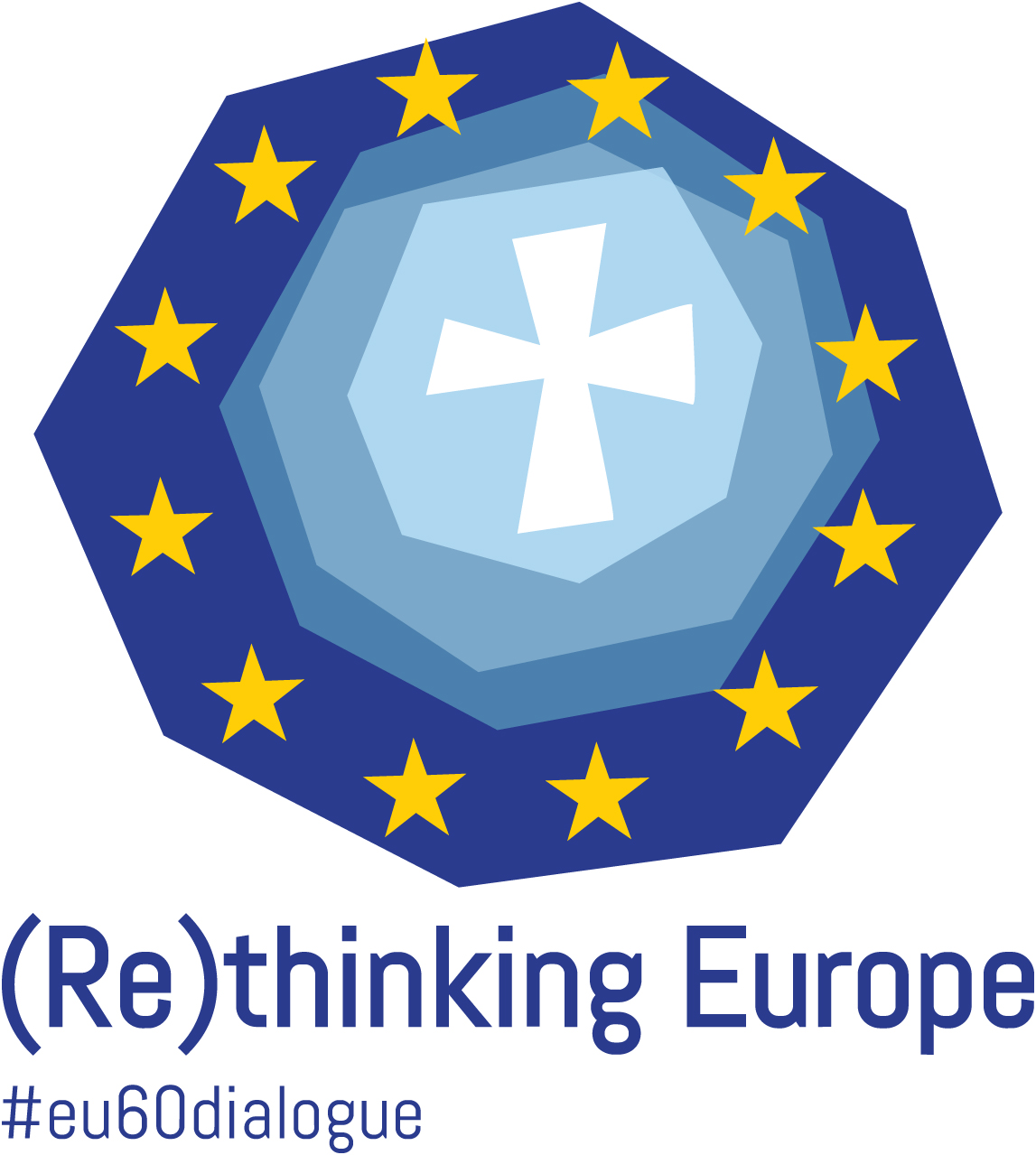 The convention entitled“(Re)Thinking Europe. A Christian contribution to the future of the Project for Europe” was held in the Vatican from 27 to 29 October. It was organised by the Commission of the European Bishops’ Conference (COMECE) in cooperation with the Secretary of State. “The commitment of Christians has to constitute a promise of peace,” Pope Francis said at the conclusion of the works. This is not “a time to build trenches, but rather, to work to fully pursue the dream of the Founding Fathers of a united and peaceful Europe, a community of peoples who want to share a future of development and peace.”
The convention entitled“(Re)Thinking Europe. A Christian contribution to the future of the Project for Europe” was held in the Vatican from 27 to 29 October. It was organised by the Commission of the European Bishops’ Conference (COMECE) in cooperation with the Secretary of State. “The commitment of Christians has to constitute a promise of peace,” Pope Francis said at the conclusion of the works. This is not “a time to build trenches, but rather, to work to fully pursue the dream of the Founding Fathers of a united and peaceful Europe, a community of peoples who want to share a future of development and peace.”

Ilona Toth
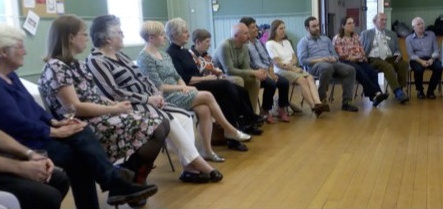
Oct 30, 2017 | Non categorizzato
 A small crowd gathered together despite the pouring rain and there was a tree of stylized branches on which many peace messages sprouted like leaves. This is just one of the more recent snapshots of an ongoing friendship between the Focolare community of Scotland and the Muslims of the Ahl Al Bait Society, founded in 1991 with the aim of promoting cultural legacy and religious faith of the Muslim minority in the country, and helping it to integrate into its social context. Together, the two communities have been promoting for some time now, moments of sharing, encounter and common prayer, where interreligious dialogue is proposed as a key element to face and heal the many divisions that are dangerously affecting the social weft, not only in Europe. Last 19 September, umbrellas opened under a grey sky to give a colourful sign of this commitment. Among those attending the Wake for Peace and Hope were some civil and religious personages, among which were Lord Provost, representative of the city’s Municipal Council, Metropolitan Archbishop Emeritus of Glasgow, Mario Conti, and some exponents of the Muslim Council of Scotland.
A small crowd gathered together despite the pouring rain and there was a tree of stylized branches on which many peace messages sprouted like leaves. This is just one of the more recent snapshots of an ongoing friendship between the Focolare community of Scotland and the Muslims of the Ahl Al Bait Society, founded in 1991 with the aim of promoting cultural legacy and religious faith of the Muslim minority in the country, and helping it to integrate into its social context. Together, the two communities have been promoting for some time now, moments of sharing, encounter and common prayer, where interreligious dialogue is proposed as a key element to face and heal the many divisions that are dangerously affecting the social weft, not only in Europe. Last 19 September, umbrellas opened under a grey sky to give a colourful sign of this commitment. Among those attending the Wake for Peace and Hope were some civil and religious personages, among which were Lord Provost, representative of the city’s Municipal Council, Metropolitan Archbishop Emeritus of Glasgow, Mario Conti, and some exponents of the Muslim Council of Scotland. 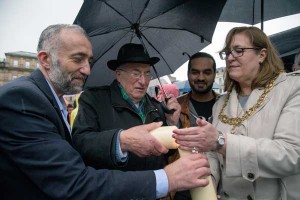 The organisers explained that this initiative was inspired by the appeal launched by Pope Francis for solidarity with Syrian people. Liz Taite of the Focolare Movement explained: “In a moment in which various circumstances are sowing division and conflicts, the Focolare Movement, together with people of different faiths, intends to publicly promote a message of peace. This event is the sign that God is at work and that peace is possible.” Azzam Mohammad, director of the Ahl Al Bait Society said: “Together we want to bring down the barriers, eliminate the fear and diffidence, and increase comprehension and mutual respect. We worked with sincerity and heartiness as a team, and it was a success. This is a step that marks the history of our common endeavours and will be an example for all the communities around us. Now we have started to plan for the next event.”
The organisers explained that this initiative was inspired by the appeal launched by Pope Francis for solidarity with Syrian people. Liz Taite of the Focolare Movement explained: “In a moment in which various circumstances are sowing division and conflicts, the Focolare Movement, together with people of different faiths, intends to publicly promote a message of peace. This event is the sign that God is at work and that peace is possible.” Azzam Mohammad, director of the Ahl Al Bait Society said: “Together we want to bring down the barriers, eliminate the fear and diffidence, and increase comprehension and mutual respect. We worked with sincerity and heartiness as a team, and it was a success. This is a step that marks the history of our common endeavours and will be an example for all the communities around us. Now we have started to plan for the next event.”  In August, Daniel, of Glasgow had participated in the Summer School Interfaith Engagement in Theory and Practice, a course/workshop dedicated to interreligious dialogue, and promoted for some years now by the Sophia University Institute and the Risalat Institute of Qum (Iran) in Tonadico, Northern Italy. This year the participants came from Canada, Europe and the United States. “I think that my city can understand the values of multiculturalism and integration. When we are united and supportive, and you recognise your own values in those who, at first sight, seem to be different, we can face the daily battles in a different way. These encounters between different faiths and cultures are testimonies of how unity is possible even when we are different. This diversity strengthens us and reminds us to greet each other as brothers and sisters, welcoming each other with open arms and a smile. We all can become messengers of hope and peace and engines of change.”
In August, Daniel, of Glasgow had participated in the Summer School Interfaith Engagement in Theory and Practice, a course/workshop dedicated to interreligious dialogue, and promoted for some years now by the Sophia University Institute and the Risalat Institute of Qum (Iran) in Tonadico, Northern Italy. This year the participants came from Canada, Europe and the United States. “I think that my city can understand the values of multiculturalism and integration. When we are united and supportive, and you recognise your own values in those who, at first sight, seem to be different, we can face the daily battles in a different way. These encounters between different faiths and cultures are testimonies of how unity is possible even when we are different. This diversity strengthens us and reminds us to greet each other as brothers and sisters, welcoming each other with open arms and a smile. We all can become messengers of hope and peace and engines of change.”
Oct 29, 2017 | Non categorizzato, Spiritualità, Word of
for ages 4-8 | for ages 9-17 | Print | Audio Jesus was speaking to the crowds that followed him, telling them about the new lifestyle of those who want to be his disciples, a way of life that went “against the current” in comparison to the usual way of thinking (see Mt 23:1–11). In his day (and today, too) it was easy to talk in high moral terms and then not live accordingly, seeking prestige in society, wanting to be seen or using others for personal advantage. Jesus asks his disciples to have a completely different logic when relating to others, as he himself had: “The greatest among you will be your servant.” At a September 1982 meeting in Payerne, Switzerland, Chiara Lubich shared her spiritual experience with people who wanted to discover how to live out the Gospel: “We must keep our gaze fixed on the one Father of so many children, and then consider all people as children of that one Father … “Jesus, who is our model, taught us two things that are ultimately one: to be children of our one Father and to be brothers and sisters to one another … God was calling us to universal brotherhood and sisterhood.” This is what is new, to love everyone just as Jesus did, because all people — you and me and every person on the face of the earth — are children of God, who have always been loved and wanted by him. In this way, we discover that the brother or sister we should love in concrete ways (with our muscles too) is every single person we meet on a daily basis. This means my dad, my mother-in-law and my rebellious child. It means someone in prison, a street beggar, someone who is disabled, my manager and the cleaners at work. It means my colleague in a political party and the person who has different political opinions than I do. It means people of our faith and culture, as well as foreigners. The characteristically Christian attitude toward every brother or sister is to serve them. “The greatest among you will be your servant.” “To strive for the primacy of the Gospel by putting ourselves at the service of everyone,” Chiara continued, “what is the best way to serve? “To make ourselves one with everyone we meet, feeling what they feel within ourselves: helping as though their problems were our own, made ours by love … No longer living just thinking of ourselves but seeking to bear other people’s burdens and to share their joys.” Each of our skills and good points, all that we might feel “great” about, is an opportunity to serve that should not be lost. Our work skills, our artistic talents, our knowledge, but also being able to laugh or make people laugh — or the time given to listening to someone who is unsure about what to do or who is in difficulty. There’s the energy of youth, but also the power of prayer, when physical strength lessens. “The greatest among you will be your servant.” Sooner or later, this selfless Gospel love kindles within the heart of our brothers and sisters the same desire to share, renewing relationships in the family, the parish, in workplaces and places where people relax, laying the foundations for a new society. Here’s an experience from Hermez, a teenager from the Middle East: “It was Sunday, and as soon as I woke up I asked Jesus to help me love all day long. I realized my parents had gone to an early Mass, and it occurred to me to clean and tidy the house. “I tried to do everything well, even putting some flowers on the table! Then I prepared breakfast and set the table. “When they came back, my parents were surprised and happy seeing all I had done. That Sunday, breakfast together was especially joyful; we spent time talking about many things, and I was able to share many experiences I had had that week. “That small act of love had set the tone for a fantastic day! By Letizia Magri
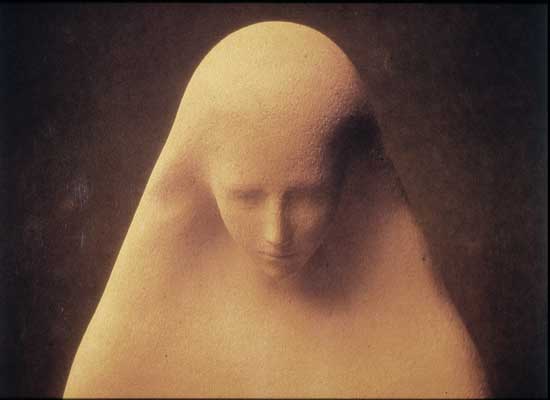
Oct 28, 2017 | Non categorizzato

Ave Cerquetti, ‘Mater Christi’ – Rome, 1971
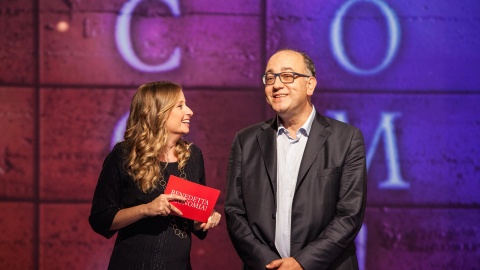
Oct 28, 2017 | Non categorizzato
 What connections can there be among the Bible and work, business, finance? Beginning tomorrow, an eight part series on Tv2000 with Luigino Bruni, focolarino, economist and passionate Bible enthusiast, instructor at Lumsa University in Rome, Italy, and Sophia University Institute in Loppiano, Italy. He will discuss with political world figures, labour union members and with workers, managers, business people who will present their testimonies of an economy oriented towards the human person. Based on the Economy of Communion, which considers as actors in the economy all those people that are not content with just turning a profit or themselves, but are open to the needs of the poorer folks, involving business owners, leaders and workers, students and ordinary citizens in the application of an economic culture that is marked by communion and reciprocity. In each episode a new connection will be made between a Bible passage and an aspect of the economy. The series will offer an opportunity to reflect on the original reasons, but also the current reasons for the inequity in the social fabric: insecurity, speculative logic, injustice, market intrusion in the public sphere and insecurity. There will also be business people and workers in the studio and via satellite to focus attention on small and medium-sized companies that have already exprienced success combining justice and market, profit and the common good, employment and solidarity. Beginning from the account of the Israelites in Egypt, found in the Book of Exodus, it considers the defence of workers rights. The second episode is an economic reading of the parable of the Prodigal Son and a comparison of themes of mercy and forgiveness with stories of business owners who have founded their business on a model of acceptance and sharing. A passage from Isaiah will raise a discussion in the episode dedicated to the “sacrificial model” adopted by many career managers, and by others that have been refuted in favour of free choice. A review of the story of Job, who falls into ruin and believes he is guilty, will be used to reflect on the hidden risks of the cult of merit. A page from the book of Jeremiah dedicated to false idols, will analyze the some of the motives that push many men and women of today into buying and consumerism on holy days, succumbing to the logic of the market square. Poverty and wealth will be themes of the sixth episode, in which the provocation of the Beatitudes will be confronted with the tendency to hide the value and meaning of poverty, sobriety and acceptance. The reading of the story of the Tower of Babel, mother of all failed businesses, will help to understand the errors that still today can lead a business into failure or towards mistaken ethical and social choices, and to discuss the social and economic consequences of organized crime. Finally, in the last episode, the reading of the story of Noah’s Ark will provide the opportunity to reflect on the “builders of arks of hope” that are still present in our day, with several stories of people that were able to veer in a different direction after very negative expriences, towards a more positive future for themselves and others.
What connections can there be among the Bible and work, business, finance? Beginning tomorrow, an eight part series on Tv2000 with Luigino Bruni, focolarino, economist and passionate Bible enthusiast, instructor at Lumsa University in Rome, Italy, and Sophia University Institute in Loppiano, Italy. He will discuss with political world figures, labour union members and with workers, managers, business people who will present their testimonies of an economy oriented towards the human person. Based on the Economy of Communion, which considers as actors in the economy all those people that are not content with just turning a profit or themselves, but are open to the needs of the poorer folks, involving business owners, leaders and workers, students and ordinary citizens in the application of an economic culture that is marked by communion and reciprocity. In each episode a new connection will be made between a Bible passage and an aspect of the economy. The series will offer an opportunity to reflect on the original reasons, but also the current reasons for the inequity in the social fabric: insecurity, speculative logic, injustice, market intrusion in the public sphere and insecurity. There will also be business people and workers in the studio and via satellite to focus attention on small and medium-sized companies that have already exprienced success combining justice and market, profit and the common good, employment and solidarity. Beginning from the account of the Israelites in Egypt, found in the Book of Exodus, it considers the defence of workers rights. The second episode is an economic reading of the parable of the Prodigal Son and a comparison of themes of mercy and forgiveness with stories of business owners who have founded their business on a model of acceptance and sharing. A passage from Isaiah will raise a discussion in the episode dedicated to the “sacrificial model” adopted by many career managers, and by others that have been refuted in favour of free choice. A review of the story of Job, who falls into ruin and believes he is guilty, will be used to reflect on the hidden risks of the cult of merit. A page from the book of Jeremiah dedicated to false idols, will analyze the some of the motives that push many men and women of today into buying and consumerism on holy days, succumbing to the logic of the market square. Poverty and wealth will be themes of the sixth episode, in which the provocation of the Beatitudes will be confronted with the tendency to hide the value and meaning of poverty, sobriety and acceptance. The reading of the story of the Tower of Babel, mother of all failed businesses, will help to understand the errors that still today can lead a business into failure or towards mistaken ethical and social choices, and to discuss the social and economic consequences of organized crime. Finally, in the last episode, the reading of the story of Noah’s Ark will provide the opportunity to reflect on the “builders of arks of hope” that are still present in our day, with several stories of people that were able to veer in a different direction after very negative expriences, towards a more positive future for themselves and others.
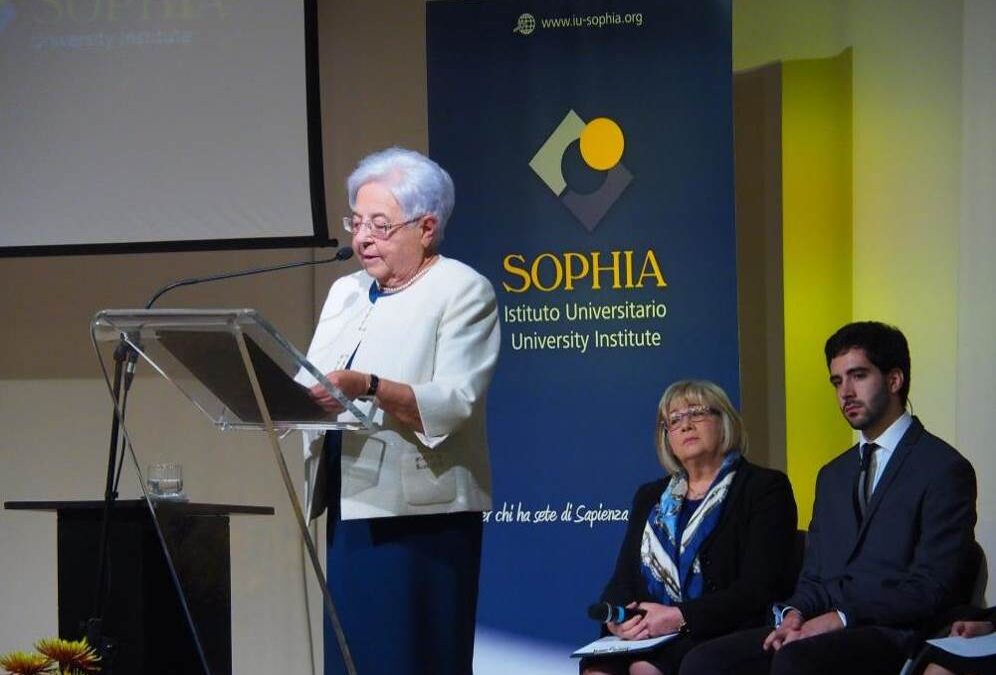
Oct 27, 2017 | Non categorizzato
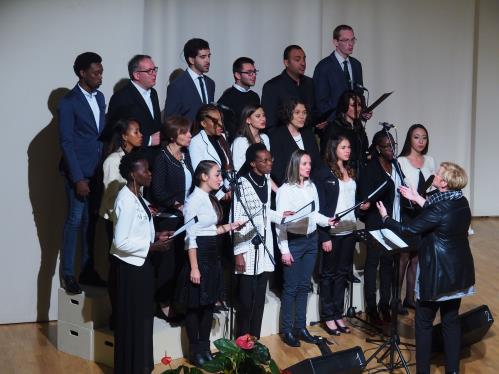 As processes of isolation increase around the world, Sophia University Institute opens a courageous new Centre for Global Studies which will “provide tools for understanding, managing and changing processes of global relations,” explained Pasquale Ferrara, Italian Ambassador to Algeria and president of the new Centre. “The new centre is the result of ten years of academic experience, and its goal is the training of a new generation of leaders that is capable of facing the complexity, and motivated to work for dialogue and peace.” “No country, no group can allow itself to become isolated from the other,” said Paolo Frizzi, professor of Religions and Global Processes, and Director of the Centre. “We are in the middle of an uncertain passage, which is transient and happening on many levels.
As processes of isolation increase around the world, Sophia University Institute opens a courageous new Centre for Global Studies which will “provide tools for understanding, managing and changing processes of global relations,” explained Pasquale Ferrara, Italian Ambassador to Algeria and president of the new Centre. “The new centre is the result of ten years of academic experience, and its goal is the training of a new generation of leaders that is capable of facing the complexity, and motivated to work for dialogue and peace.” “No country, no group can allow itself to become isolated from the other,” said Paolo Frizzi, professor of Religions and Global Processes, and Director of the Centre. “We are in the middle of an uncertain passage, which is transient and happening on many levels. 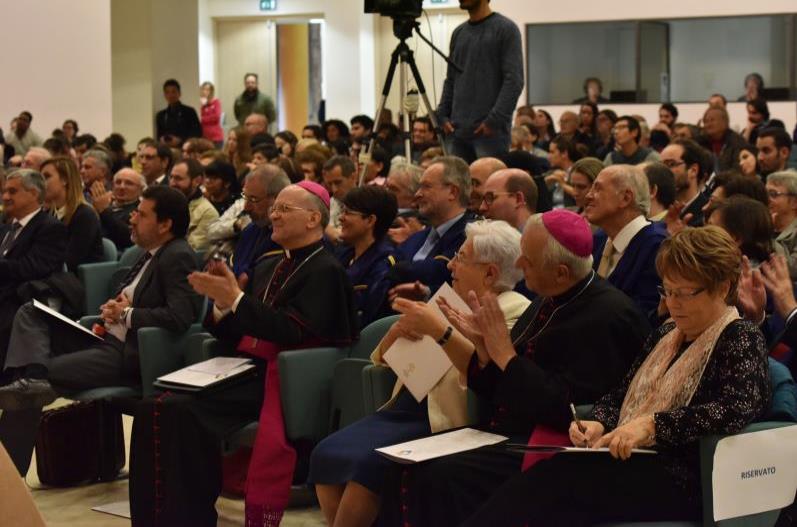 Sophia Institute, the result of Chiara Lubich’s intuition, has tripled its offerings this year: Master Degree in Economics and Management, Trinitarian Ontology and Culture of Unity, with their respective doctorates. President Msgr Piero Coda explains: “The complex nature of the national and global horizon requires a relentless effort oriented towards the unity of the human family guided by a new thought. In these ten years, Sophia has grown into an Intercultural, inter and trans-disciplinary centre where an integral relationship is nurtured among study, experience and research.”
Sophia Institute, the result of Chiara Lubich’s intuition, has tripled its offerings this year: Master Degree in Economics and Management, Trinitarian Ontology and Culture of Unity, with their respective doctorates. President Msgr Piero Coda explains: “The complex nature of the national and global horizon requires a relentless effort oriented towards the unity of the human family guided by a new thought. In these ten years, Sophia has grown into an Intercultural, inter and trans-disciplinary centre where an integral relationship is nurtured among study, experience and research.”
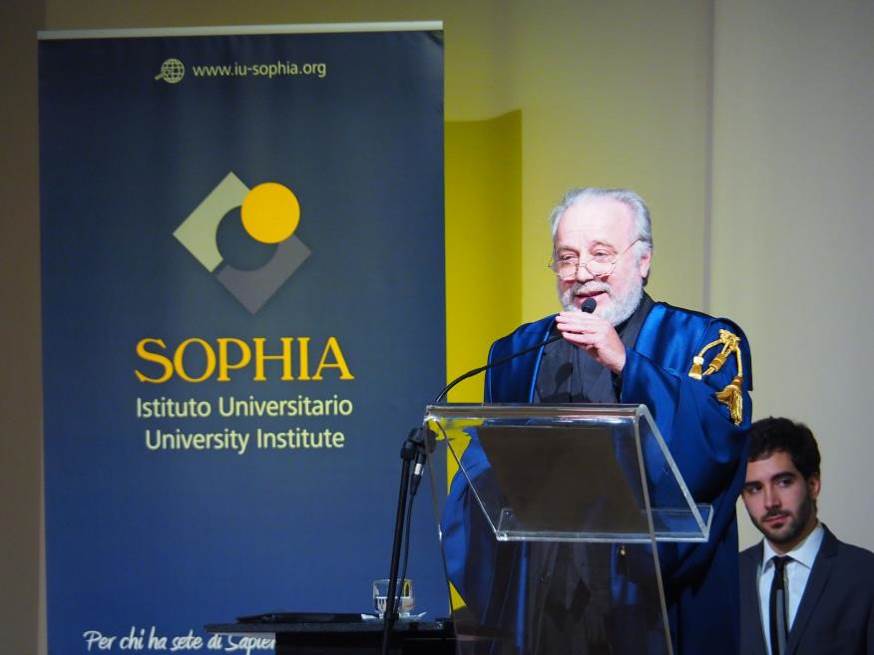
Msgr Piero Coda
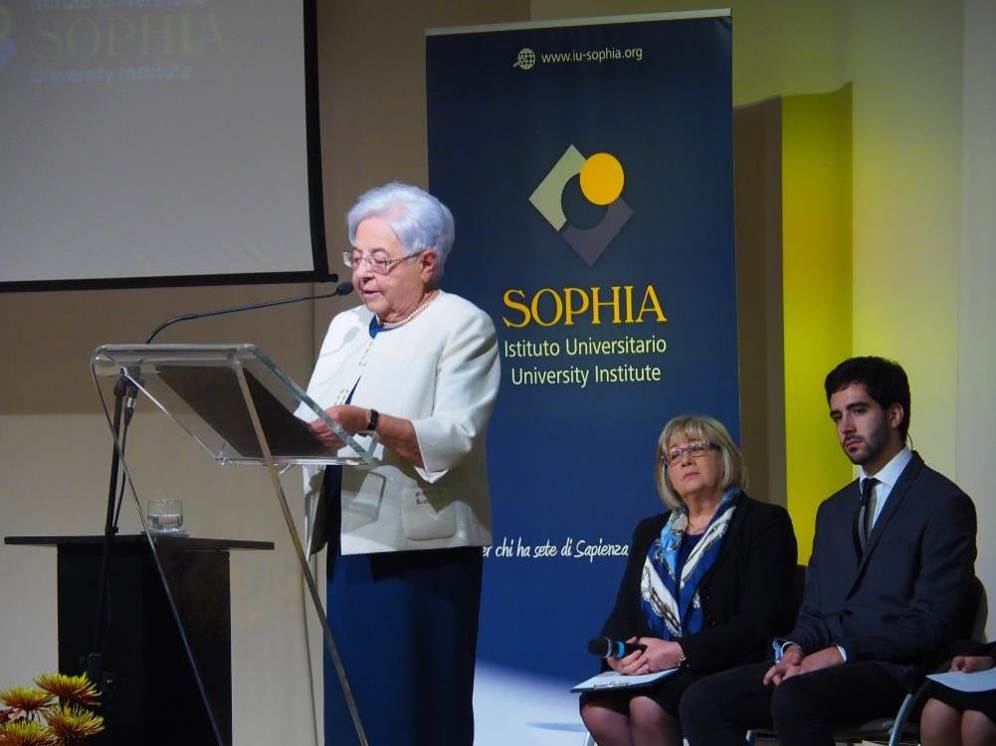
Maria Voce
Oct 26, 2017 | Non categorizzato
Together for Europe (TfE) is an initiative of over 300 Christian Movements and Communities belonging to different Churches in Europe. The Steering Committee which is entrusted with a coordination role is composed of the following members: Christophe D’Aloisio (Fraternité orthodoxe en Europe occidentale), Marco Impagliazzo (Community of Sant’Egidio), Michelle Moran (ICCRS / Sion Community), Gerhard Pross (CVJM/YMCA Esslingen), Thomas Roemer (CVJM/YMCA Munich), Gérard Testard (Efesia), Maria Voce (Focolare Movement) and Fr. Heinrich Walter (Schoenstatt). In 2017, the “Friends” of TfE network will hold their annual conference in Vienna, a city that is a bridge connecting Eastern and Western Europe. A total of 120 participants from around 20 Eastern and Western European countries and 40 Movements are expected to attend. Their main aim will be to pool ideas on three topics:
- What culture is generated by the history of Together for Europe?
- What is our specific contribution to Europe?
- Dialogue between East and West: a mutual enrichment
This network of people embraces all of Europe from England to Russia, from Portugal to Greece. Their shared mission: through the upcoming meeting, to strengthen communion among their individual charisms and build united and multifaceted Europe, with strong social cohesion and cultural diversity. The meeting will open, on 9th November 2017, in the Stephansdom Cathedral of Vienna, with an Ecumenical prayer for Europe. All those who wish for peace in Europe and in the world, are invited to take part in this moment of prayer. Cardinal Christoph Schoenborn, Archbishop of Vienna, Auxiliary Bishop Emeritus Helmuth Kraetzl, Catholic Church, Archpriest Vicar Ivan Petkin, Bulgarian Orthodox Church in Austria, Chorbishop Emanuel Aydin, Syrian Orthodox Church in Austria, Patriarchal Delegate Tiran Petrosyan, Armenian Apostolic Church, Patrick Curran, Archdeacon of the Eastern Archdeaconry of the Anglican Church in Europe, together with all the present will bring before God needs and opportunities of our continent. The intention of the prayer is extremely timely: unity in diversity, peace in justice. Following personalities will address the gathering: Thomas Hennefeld, Superintendent of the Reformed Church of Austria and President of the Ecumenical Council of Churches in Austria, and Joerg Wojahn, Head of the European Commission Representation in Austria. For further information on Together for Europe
Oct 26, 2017 | Non categorizzato
A group of young Columbian architects of the “De La Salle” University of Bogotà and Italians of “G. D’Annunzio” University of Pescara are undertaking a new stage of the traveling workshop, “Habitandando,” organized by the network of the Focolare Movement Dialogue in Architecture. From 24 to 28 October there will be a trip from Bogotà into the interior of the country, with stopovers in some colonial towns and the Amazon plains. From 30 October to 5 November a week of study-work will follow in the Altos de Cazuca district in the outskirts of Bogotà. This is a depressed area, lacking in primary infrastructure and renowned also for security-related problems. The objective is to design and experiment through creative projects and teamwork, architectonic and urban solutions aimed at generating change and creating spaces for the local community. This will be an extreme context at the limit of the resources, technological possibilities, and social and cultural environmental sustainability.
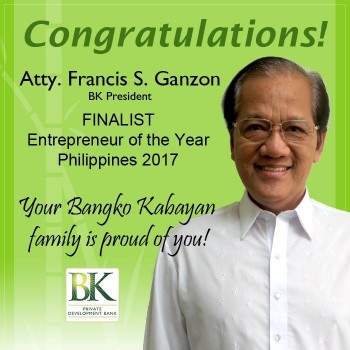
Oct 26, 2017 | Focolare Worldwide
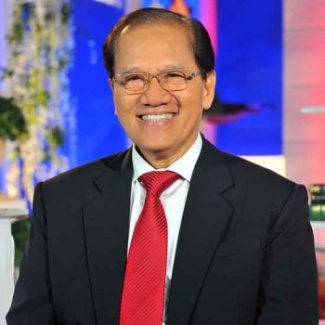 It is currently one of the biggest rural banks of the Philippines. But when Francis Ganzon (67 years old) took the helm in 1989, it only had one branch. Since then, the Institute has engaged in the support and empowering of the small and medium enterprises (SME), through the offer of quality financial systems “with a workforce united with God,” as the Bank site describes its “mission”. After obtaining his law degree, Ganzon dedicated himself to saving an institute, the Ibaan Rural Bank, Inc. (IRB), which was involved in cases of fraud. “I promoted a different work style, focusing on compliance with the laws, professionalism and centrality of the people, and promoted new practices in line with Christian values.” Ganzon embraced the spirit of the Economy of Communion, the international network of entrepreneurs engaged in putting the Social Doctrine of the Church into practice. “Subsequently, we created the Ibaan Rural Bank Foundation, with the objective of extending the microcredit programme also to deserving students with economic difficulties, through scholarships. The Asian financial crisis of 1997 also struck our bank, but we did not close down also thanks to the trust of our clients. That same year, the Bank celebrated its 40th Anniversary, and we changed its name to Bangko Kabayan (fraternity bank) as a further effort to supply people in need with the possibility to access microcredits in order to elevate their own standard of living.”
It is currently one of the biggest rural banks of the Philippines. But when Francis Ganzon (67 years old) took the helm in 1989, it only had one branch. Since then, the Institute has engaged in the support and empowering of the small and medium enterprises (SME), through the offer of quality financial systems “with a workforce united with God,” as the Bank site describes its “mission”. After obtaining his law degree, Ganzon dedicated himself to saving an institute, the Ibaan Rural Bank, Inc. (IRB), which was involved in cases of fraud. “I promoted a different work style, focusing on compliance with the laws, professionalism and centrality of the people, and promoted new practices in line with Christian values.” Ganzon embraced the spirit of the Economy of Communion, the international network of entrepreneurs engaged in putting the Social Doctrine of the Church into practice. “Subsequently, we created the Ibaan Rural Bank Foundation, with the objective of extending the microcredit programme also to deserving students with economic difficulties, through scholarships. The Asian financial crisis of 1997 also struck our bank, but we did not close down also thanks to the trust of our clients. That same year, the Bank celebrated its 40th Anniversary, and we changed its name to Bangko Kabayan (fraternity bank) as a further effort to supply people in need with the possibility to access microcredits in order to elevate their own standard of living.”  “Many clients – continued Ganzon – did not have collaterals, but we considered them as worthy people. This created a rapport of mutual trust: the bank trusted people and granted loans, and the clients trusted the bank. In this way Bangko Kabayan had a strong social impact, improving the lives of many people and many small enterprises. Then it became the preferred credit provider of the SME in our region, opening 23 branches in the provinces of Batangas, Quezon and Laguna.” In the near future, Bangko Kabayan will be committed to building a balanced portfolio of loans and capital, and in investing further in the new technologies, particularly in internet banking. Up to now Bangko Kabayan has been receiving various awards. In 2007, it received the best Capital Build-up in the PremiLandbank and was ranked among the best credit institutes at global level for microcredit. From 2008 to 2011 and again in 2013 and 2015, it was nominated in the region where it has its main office, a partner of the Land Bank of the Philippines. It moreover received Microenterprise access to the MF EAGLE award for bank service from 2003 to 2007 and again in 2010 and 2011. «Determination and integrity will always be compensated,” concluded Ganzon. “I am anxiously waiting for the day in which bank transactions can be done with a handshake instead of on paper.”
“Many clients – continued Ganzon – did not have collaterals, but we considered them as worthy people. This created a rapport of mutual trust: the bank trusted people and granted loans, and the clients trusted the bank. In this way Bangko Kabayan had a strong social impact, improving the lives of many people and many small enterprises. Then it became the preferred credit provider of the SME in our region, opening 23 branches in the provinces of Batangas, Quezon and Laguna.” In the near future, Bangko Kabayan will be committed to building a balanced portfolio of loans and capital, and in investing further in the new technologies, particularly in internet banking. Up to now Bangko Kabayan has been receiving various awards. In 2007, it received the best Capital Build-up in the PremiLandbank and was ranked among the best credit institutes at global level for microcredit. From 2008 to 2011 and again in 2013 and 2015, it was nominated in the region where it has its main office, a partner of the Land Bank of the Philippines. It moreover received Microenterprise access to the MF EAGLE award for bank service from 2003 to 2007 and again in 2010 and 2011. «Determination and integrity will always be compensated,” concluded Ganzon. “I am anxiously waiting for the day in which bank transactions can be done with a handshake instead of on paper.”
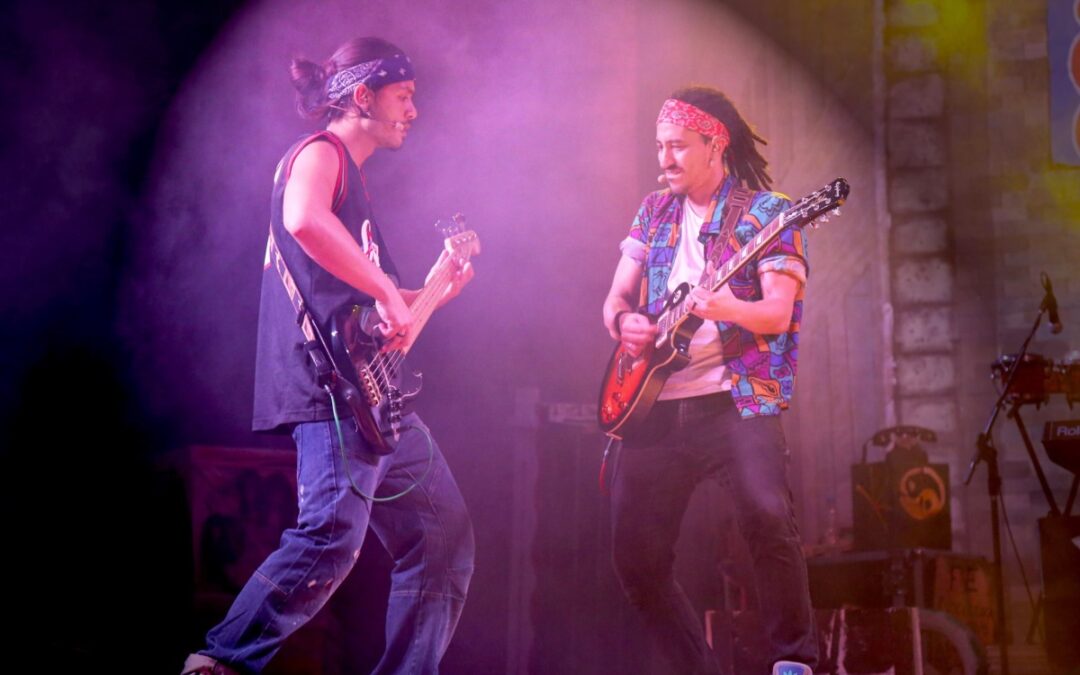
Oct 25, 2017 | Non categorizzato
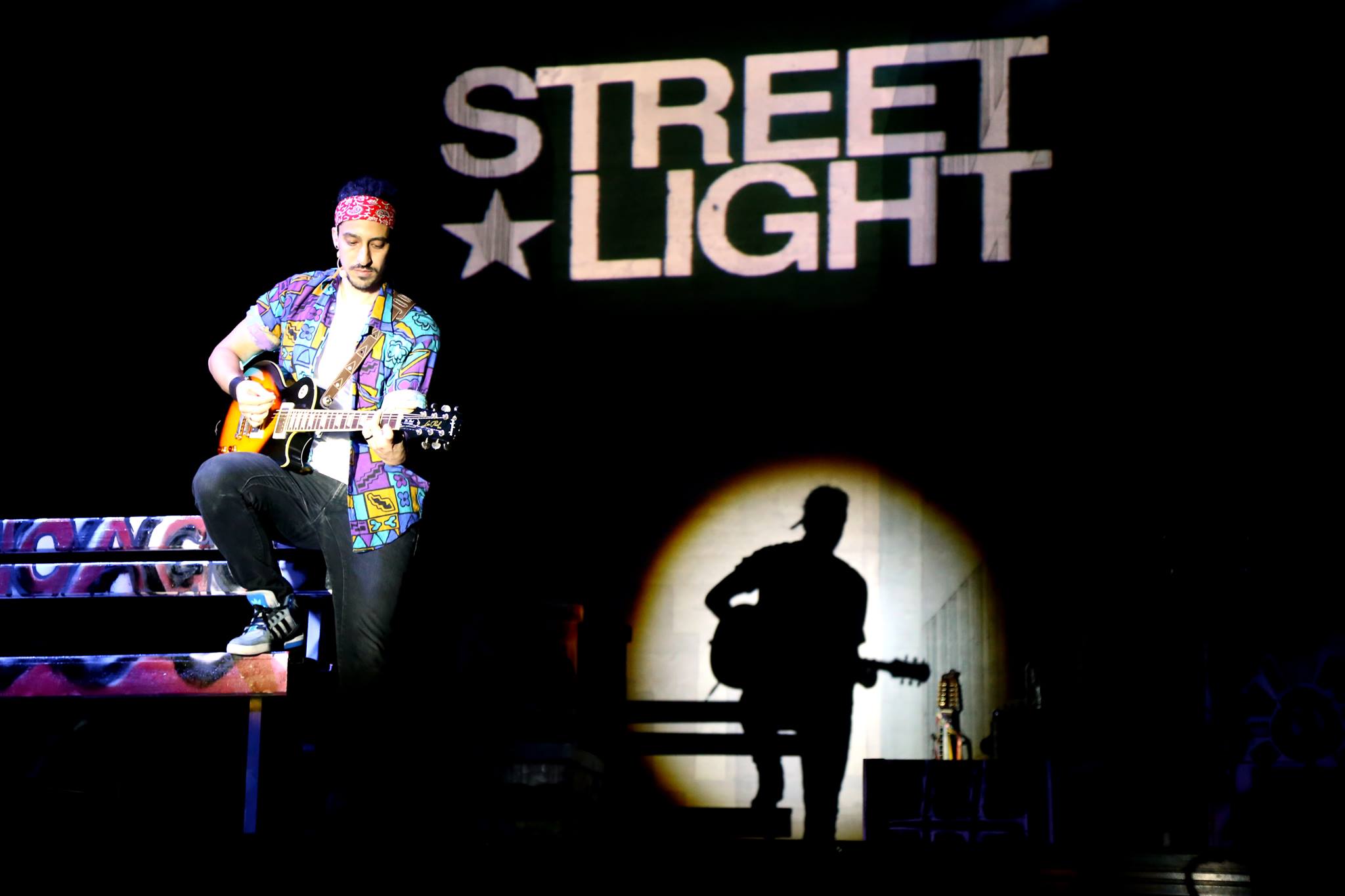 Organized by the Fazenda da Esperança, the Gen Rosso band’s Brazilian tour “Every life has a hope” is now underway. After a first stopover in the State of Santa Caterina, the tour will move on to the Central and Northern regions of the country. Joinville, ten hours by coach from Sao Paolo, is a modern city and a reference point for all dance enthusiasts, and not only the South Americans. Apart from Moscow, it is the only one that hosts a school of the Bolshoi Theater, where the old Russian method is taught. In the city of dance, from last 24 September to 1 October, nine Bolshoi ballet dancers and four others of the Cultural Centre contributed in setting up a musical. Streetlight is an original project that was staged with over 200 youths with drug addiction problems. In three days of intense work, they learnt and practiced dance steps and music, side by side with artists and youngsters, inspired by the motto one for the other. At the end, the curtain rose and the show was staged. It was not a job performed “for” the youth, but “with” the youth, said Globo TV – the most popular TV channel in Brazil – which dedicated several spots and interviews to the programme. A workshop dedicated to the educators and social workers working in the city, was held simultaneously on themes regarding the psychological, social and family processes connected to the rehab from the various types of addictions.
Organized by the Fazenda da Esperança, the Gen Rosso band’s Brazilian tour “Every life has a hope” is now underway. After a first stopover in the State of Santa Caterina, the tour will move on to the Central and Northern regions of the country. Joinville, ten hours by coach from Sao Paolo, is a modern city and a reference point for all dance enthusiasts, and not only the South Americans. Apart from Moscow, it is the only one that hosts a school of the Bolshoi Theater, where the old Russian method is taught. In the city of dance, from last 24 September to 1 October, nine Bolshoi ballet dancers and four others of the Cultural Centre contributed in setting up a musical. Streetlight is an original project that was staged with over 200 youths with drug addiction problems. In three days of intense work, they learnt and practiced dance steps and music, side by side with artists and youngsters, inspired by the motto one for the other. At the end, the curtain rose and the show was staged. It was not a job performed “for” the youth, but “with” the youth, said Globo TV – the most popular TV channel in Brazil – which dedicated several spots and interviews to the programme. A workshop dedicated to the educators and social workers working in the city, was held simultaneously on themes regarding the psychological, social and family processes connected to the rehab from the various types of addictions. 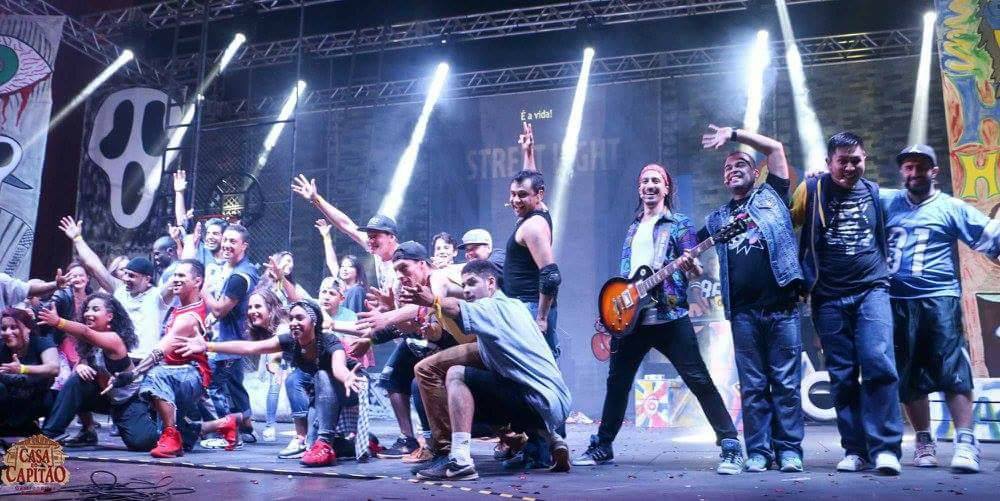 Fr. Luiz, current president of the Fazenda together with Angelucia, Nelson and Iracì, some of the pioneers of the “factory” of hope, which has spread from Brazil to Latin America, the Philippines, Africa, Russia and Central Europe, worked side by side with Gen Rosso, which for that occasion expanded its team, involving also other members of the local Focolare community. Enthusiasm among the youths involved onstage was sky-high. “It is really worthwhile to try and overcome one’s limits. I thank the Fazenda for giving us this opportunity to work with Gen Rosso”.
Fr. Luiz, current president of the Fazenda together with Angelucia, Nelson and Iracì, some of the pioneers of the “factory” of hope, which has spread from Brazil to Latin America, the Philippines, Africa, Russia and Central Europe, worked side by side with Gen Rosso, which for that occasion expanded its team, involving also other members of the local Focolare community. Enthusiasm among the youths involved onstage was sky-high. “It is really worthwhile to try and overcome one’s limits. I thank the Fazenda for giving us this opportunity to work with Gen Rosso”. 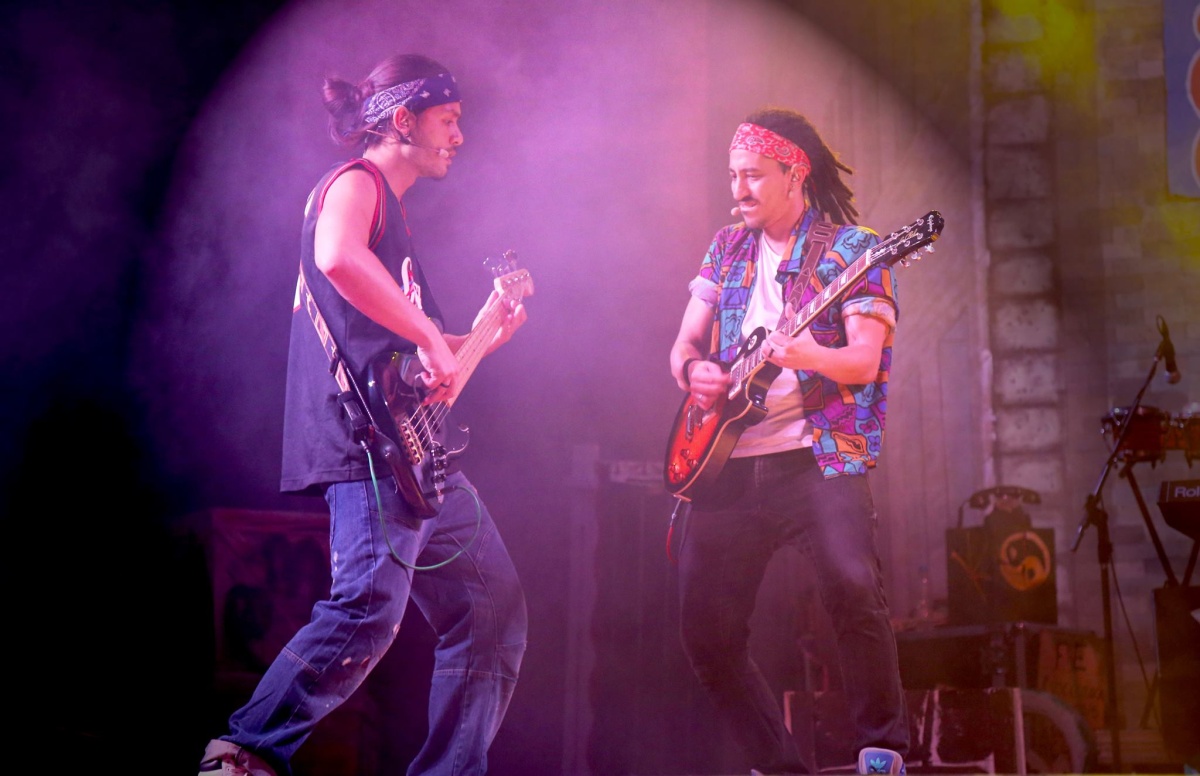 So taken by the music and the rhythm, a boy who in the past headed a violent gang, said: “The adrenalin I had experienced while doing bad things, was for me, the utmost. But I saw that one can be even happier in doing good, without drugs and alcohol. This is something new for me.” William, of the Bolshoi school: “I learned that one can dance not only with technique and discipline but also with one’s heart. It was a joyous and likewise harmonious experience expressed also with a smile.” A ballerina of the Cultural Centre said: ”Our professionalism encountered the force of a lifestyle of many youths: a surprise for me and a miracle of art for one another.” Also the public expressed surprise and enthusiasm: “I saw my city get involved.” “It is art that becomes service to society.” “You have strengthened unity among the various civil communities; a very precious experience which we must pursue in the future.” Meanwhile, after the concert in every city of the tour, the group continued the work to ensure that connections between the various social institutions engaged in the education and rehabilitation from drugs and other addictions, were consolidated and strengthened, so as not to allow the streetlights to dim. Streetlight Video.
So taken by the music and the rhythm, a boy who in the past headed a violent gang, said: “The adrenalin I had experienced while doing bad things, was for me, the utmost. But I saw that one can be even happier in doing good, without drugs and alcohol. This is something new for me.” William, of the Bolshoi school: “I learned that one can dance not only with technique and discipline but also with one’s heart. It was a joyous and likewise harmonious experience expressed also with a smile.” A ballerina of the Cultural Centre said: ”Our professionalism encountered the force of a lifestyle of many youths: a surprise for me and a miracle of art for one another.” Also the public expressed surprise and enthusiasm: “I saw my city get involved.” “It is art that becomes service to society.” “You have strengthened unity among the various civil communities; a very precious experience which we must pursue in the future.” Meanwhile, after the concert in every city of the tour, the group continued the work to ensure that connections between the various social institutions engaged in the education and rehabilitation from drugs and other addictions, were consolidated and strengthened, so as not to allow the streetlights to dim. Streetlight Video.

 The convention entitled“(Re)Thinking Europe. A Christian contribution to the future of the Project for Europe” was held in the Vatican from 27 to 29 October. It was organised by the Commission of the European Bishops’ Conference (COMECE) in cooperation with the Secretary of State. “The commitment of Christians has to constitute a promise of peace,” Pope Francis said at the conclusion of the works. This is not “a time to build trenches, but rather, to work to fully pursue the dream of the Founding Fathers of a united and peaceful Europe, a community of peoples who want to share a future of development and peace.”
The convention entitled“(Re)Thinking Europe. A Christian contribution to the future of the Project for Europe” was held in the Vatican from 27 to 29 October. It was organised by the Commission of the European Bishops’ Conference (COMECE) in cooperation with the Secretary of State. “The commitment of Christians has to constitute a promise of peace,” Pope Francis said at the conclusion of the works. This is not “a time to build trenches, but rather, to work to fully pursue the dream of the Founding Fathers of a united and peaceful Europe, a community of peoples who want to share a future of development and peace.” 


 The organisers explained that this initiative was inspired by the appeal launched by Pope Francis for solidarity with Syrian people. Liz Taite of the Focolare Movement explained: “In a moment in which various circumstances are sowing division and conflicts, the Focolare Movement, together with people of different faiths, intends to publicly promote a message of peace. This event is the sign that God is at work and that peace is possible.” Azzam Mohammad, director of the Ahl Al Bait Society said: “Together we want to bring down the barriers, eliminate the fear and diffidence, and increase comprehension and mutual respect. We worked with sincerity and heartiness as a team, and it was a success. This is a step that marks the history of our common endeavours and will be an example for all the communities around us. Now we have started to plan for the next event.”
The organisers explained that this initiative was inspired by the appeal launched by Pope Francis for solidarity with Syrian people. Liz Taite of the Focolare Movement explained: “In a moment in which various circumstances are sowing division and conflicts, the Focolare Movement, together with people of different faiths, intends to publicly promote a message of peace. This event is the sign that God is at work and that peace is possible.” Azzam Mohammad, director of the Ahl Al Bait Society said: “Together we want to bring down the barriers, eliminate the fear and diffidence, and increase comprehension and mutual respect. We worked with sincerity and heartiness as a team, and it was a success. This is a step that marks the history of our common endeavours and will be an example for all the communities around us. Now we have started to plan for the next event.” 







 It is currently one of the biggest rural banks of the Philippines. But when Francis Ganzon (67 years old) took the helm in 1989, it only had one branch. Since then, the Institute has engaged in the support and empowering of the small and medium enterprises (SME), through the offer of quality financial systems “with a workforce united with God,” as the Bank site describes its “mission”. After obtaining his law degree, Ganzon dedicated himself to saving an institute, the Ibaan Rural Bank, Inc. (IRB), which was involved in cases of fraud. “I promoted a different work style, focusing on compliance with the laws, professionalism and centrality of the people, and promoted new practices in line with Christian values.” Ganzon embraced the spirit of the
It is currently one of the biggest rural banks of the Philippines. But when Francis Ganzon (67 years old) took the helm in 1989, it only had one branch. Since then, the Institute has engaged in the support and empowering of the small and medium enterprises (SME), through the offer of quality financial systems “with a workforce united with God,” as the Bank site describes its “mission”. After obtaining his law degree, Ganzon dedicated himself to saving an institute, the Ibaan Rural Bank, Inc. (IRB), which was involved in cases of fraud. “I promoted a different work style, focusing on compliance with the laws, professionalism and centrality of the people, and promoted new practices in line with Christian values.” Ganzon embraced the spirit of the 


